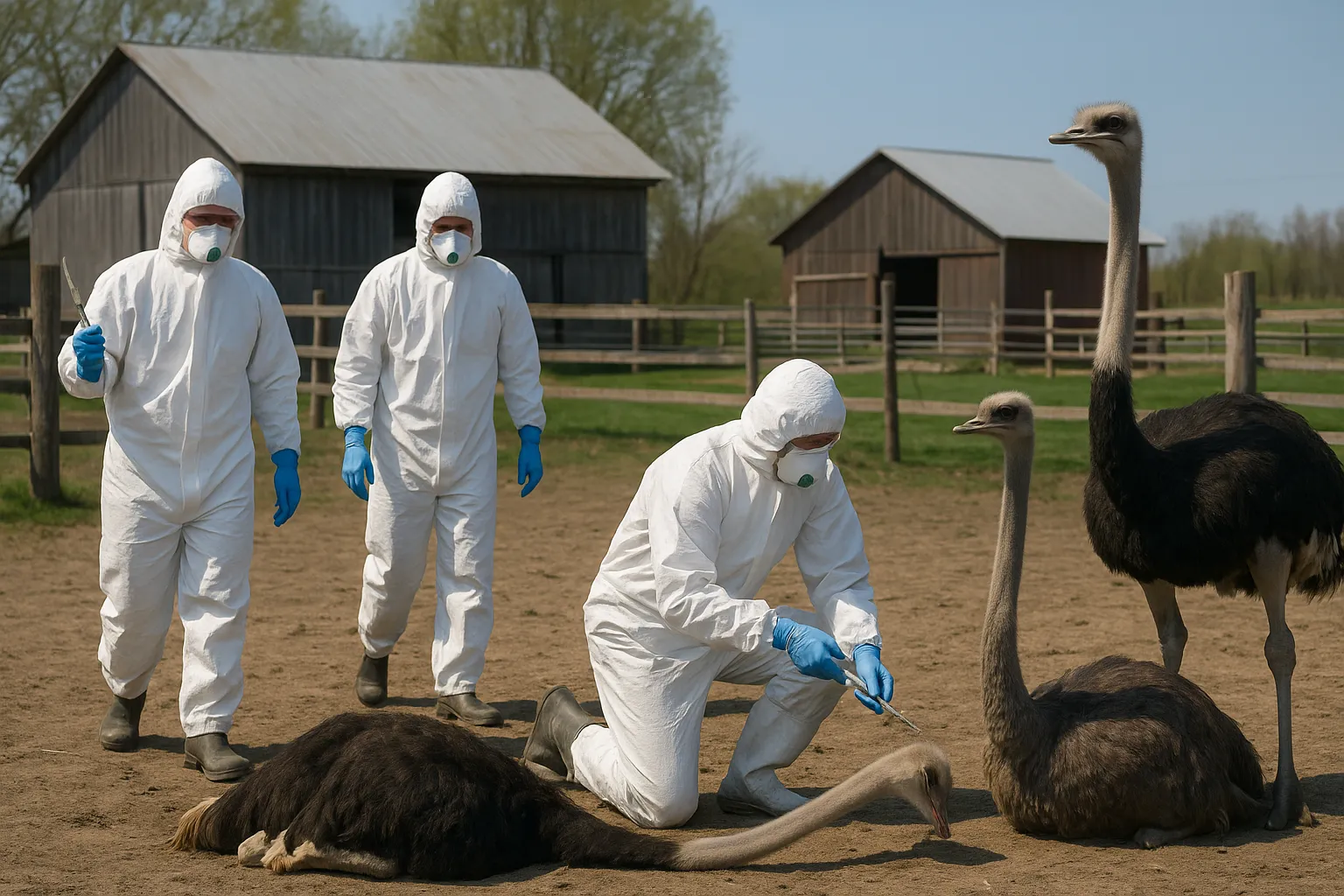Appeal Court Rejects B.C. Ostrich Farm’s Stay Request Over Avian Flu Cull

Lead The Federal Court of Appeal dismissed an ostrich farm’s bid today to halt a government-ordered cull of roughly 400 birds in Surrey, B.C., amid an ongoing avian influenza outbreak.
Nut Graf The ruling clears the way for Canadian Food Inspection Agency (CFIA) crews to begin destroying infected and at-risk ostriches this weekend. Farm owners argued the decision was premature, but judges ruled public-health concerns outweigh economic claims.
Legal Battle and Rationale Subhead: Court prioritizes disease control over economic interests The farm sought a stay of the CFIA’s directive, citing insufficient evidence of infection and potential financial ruin. The appeal panel found the CFIA had presented credible data showing H5N1 transmission among ostriches, posing a threat to neighboring poultry operations and wildlife.
Government Response Subhead: Culling to proceed under strict safety protocols Agriculture Canada spokesperson Mara Singh confirmed CFIA teams will employ humane euthanasia methods and biosecurity measures to contain the virus. Disposal sites have been secured, and environmental assessments conducted to mitigate soil and water contamination.
Farmers’ Reaction and Next Steps Subhead: Owners vow further legal challenges Farm co-owner Lana Davidson said the decision “ignores our right to due process” and vowed to pursue a full judicial review. Meanwhile, provincial officials are preparing compensation guidelines for affected producers under the federal AgriRecovery framework.
Risk to Industry and Wildlife Subhead: Avian influenza’s broader impact Since the first case in May, B.C. has recorded outbreaks on four commercial premises, leading to nearly 2,500 bird deaths. Conservationists warn migratory waterfowl may carry the virus inland, necessitating ongoing surveillance in the Fraser Valley’s critical wetland habitats.
Public Health Measures Subhead: Precautions for workers and residents CFIA crews and farm employees will follow enhanced personal protective equipment (PPE) protocols. Local health authorities advise residents to report sick or dead birds and avoid direct contact with wildlife to reduce zoonotic risk.
Categories
Autos and vehicles Beauty and fashion Business and finance Climate Entertainment Food and drink Games Health Hobbies and leisure Jobs and education Law and government Other Politics Science Shopping Sports Technology Travel and transportationRecent Posts
Tags
Archives
08/19/2025 (3) 08/20/2025 (40) 08/21/2025 (27) 08/22/2025 (22) 08/23/2025 (4) 08/24/2025 (21) 08/25/2025 (30) 08/26/2025 (24) 08/27/2025 (29) 08/28/2025 (16) 08/29/2025 (9) 08/30/2025 (13) 08/31/2025 (17) 09/01/2025 (167) 09/02/2025 (124) 09/03/2025 (149) 09/04/2025 (112) 09/05/2025 (72) 09/06/2025 (169) 09/07/2025 (162) 09/08/2025 (150) 09/09/2025 (176) 09/10/2025 (194) 09/11/2025 (194) 09/12/2025 (186) 09/13/2025 (207) 09/14/2025 (159) 09/15/2025 (175) 09/16/2025 (198) 09/17/2025 (196) 09/18/2025 (196) 09/19/2025 (207) 09/20/2025 (129) 09/21/2025 (4)